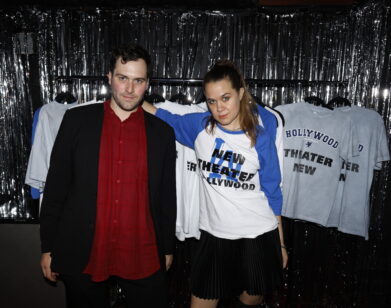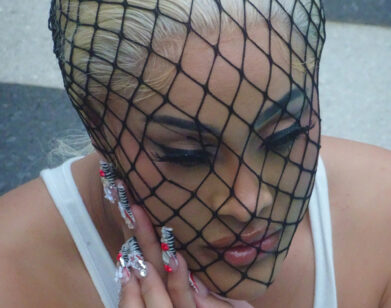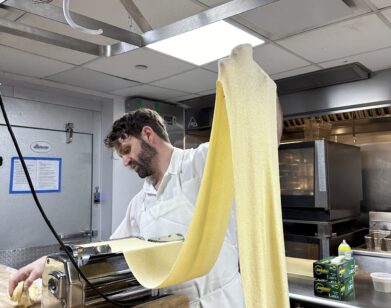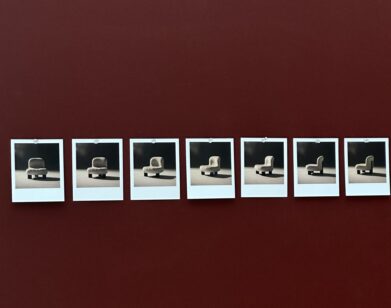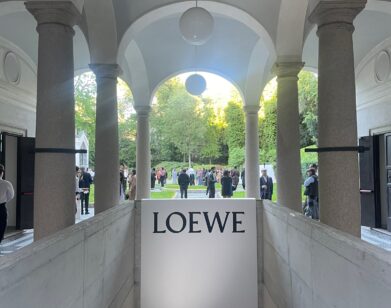Marie-Helene Bertino on the Strength of Kindness
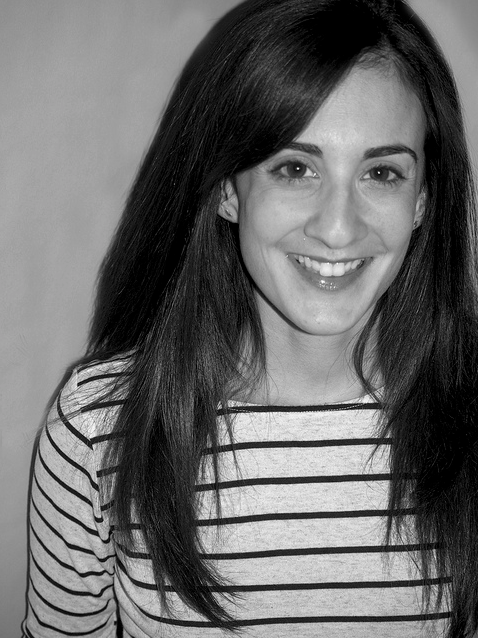
Marie-Helene Bertino’s short story collection Safe As Houses (University of Iowa Press) brilliantly tackles destruction, love, kindness, and how these forces can strengthen us. With equal parts stark poetry and smart satire, Bertino’s tales range from a family who has lost everything in a fire, a lonely alien taking notes on humanity, and a woman going on a date with the idea of her ex-boyfriend, to Bob Dylan showing up as a surprise Thanksgiving guest. Mixing elements of magic with moments of cleansing truth, these are stories about the safety that comes with accepting we are never safe. Sad, funny, and triumphant, Bertino directs her characters through times of crisis and alienation to moments of quiet confidence, of carrying on. We sat on a park bench in the Lower East Side with Bertino to discuss our blind spots, why kindness is never a weakness, break-ups, bands we can’t listen to, and letting go of guilt.
ROYAL YOUNG: What does destruction do to people’s lives?
MARIE-HELENE BERTINO: No matter what, we have these blind spots. No matter if we don’t think we do, we do. For most people I know, there does come a day where your life blows up and you’re forced to either rebuild, dare to think of your life in a new way with new people—which is, I think one of the hardest things in the world to do, or go to bed for two years, medicate or numb yourself. Though it may not feel like it at the time, I think those moments hinge on what your future is going to be like. How strong you can possibly be.
YOUNG: Do you think destruction is a cleanser?
BERTINO: It can be if you use it as such. If you decide to see it as an opportunity, destruction can be the best thing that ever happened to you.
YOUNG: Kindness has a force and a power. How does that shape people?
BERTINO: Kindness is big in the book. It’s something I wrestle with. I was raised to be kind. But many people don’t know the difference between being nice and being kind. I didn’t for a very long time, either. A lot of people can be nice, but being kind is being nice when it costs you something. That can be challenged a lot. Sometimes when you’re raised to be that way and you’re like that all the time, you’re not really good at asking for help or taking other people’s kindness, that can really hurt.
YOUNG: I like being kind and giving, but I have such a hard time telling people what I need. It scares me. That’s a big problem. And I’m working on it.
BERTINO: Good! It can be so liberating when you tell someone what you need, and they’re like, “Why didn’t you just say so?” And then everybody’s needs get met. It’s very pleasant.
YOUNG: Yes, it’s completely shocking in the best way. But so many perceive kindness as weakness. I think it’s a great strength, that people often try to take advantage of.
BERTINO: I think those of us who are on team kind have to learn, unfortunately, to have defense mechanisms around us. Or else you do get taken advantage of, for sure. There have been many come-to-Jesus nights for me, where I’m like, “Do I continue to be kind to this person? Will this make me look like a fool?” I’ve always erred on the side of doing something nice for someone, but as an adult, I’ve learned when it’s time to say no. That has been very liberating. But jerks who are mean are just always going to be mean, and I can’t be responsible for them. I don’t care about them. Someone who would consider kindness to be a weakness, I feel like that is something George Bush would think, and I don’t really hang out with people like that.
YOUNG: There’s this desire we have to pretend our parents are people with no needs. Why is that?
BERTINO: They’re just there from the moment we gain consciousness. It’s unfortunate, but there are moments when we just see them as furniture in the room. You just act out your passionate life, and they have to fucking deal with it. Then when you do realize your parents are human beings, it’s a very jarring, necessary, watershed moment everyone should go through.
YOUNG: You write about loving an idea or ideal of someone rather than the actual person. How often do you think we’re with someone and without knowing it, we’re seeing what we want in them and not who they are?
BERTINO: Probably very often. At least in the beginning in all of my relationships, I definitely had the idea of who the person was or what I hoped they were before I got to know them. Sometimes the surprise was good, and sometimes it was a bad surprise. I wrote this story because I wanted to write directly about love and break-ups. Your partner loves Led Zeppelin, so you love Led Zeppelin, and then after you break up, Led Zeppelin is completely ruined.
YOUNG: I think I have that more with place. Having recently broken up with someone I loved, when I went back to her neighborhood, it just fucking shook me. Place, for me, more than a song.
BERTINO: Really? More than a song. Songs can be so tough. I’m relatively certain I’ve ruined Bob Dylan for a lot of exes.
YOUNG: Let’s talk about people you’re not allowed to feel bad around.
BERTINO: I interview people with traumatic brain injuries. But my mom spent 37 years working with people living with severe mental disabilities. I grew up around that kind of disability, and I can recall the first time I visited her at work as a little girl and seeing the clients in the lobby, mostly wheelchair-bound, not able to speak. I remember being so scared that they were in pain. I remember the shapes and angles of their bodies, because light hit them differently. I will never forget that and feeling that they were in so much more pain than I would ever be, so how could I ever feel sorry about anything that happened to me? I still feel that way, and it’s something I battle. With my clients now, I never mention that I go running. But then I think, no, they would probably want to think of me running.
YOUNG: How do you begin to work past that?
BERTINO: I’m just a writer who got assigned to work with people who have had traumatic brain injuries. I surround myself with people who know so much more about it than I do. One of my best friends is a therapist who works with genocide survivors. We go to dinner all the time and I ask her “Should I feel guilty that I run? That I have the use of both my legs?” And she’ll say “No! Are you crazy? You should be happy and use them with zest.”
SAFE AS HOUSES IS OUT NOW.

